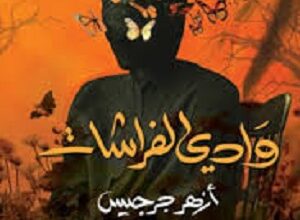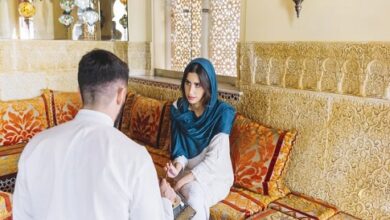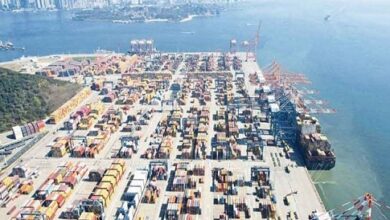Arab –Iran conflict overshadowed peace process in the Middle East

There had been no serious protests from Arab countries except a few scattered protests following announcement by President Donald Trump of the United States on 16 December of 2017 to recognize Jerusalem as the capital of Israel.The administration of the United States has now moved its embassy from Tel Aviv to Jerusalem on 14 May which has caused delight to Israeli administration while President of Palestinian authority Mahmoud Abbas called it “a slap in the face” and added that Washington could no longer be regarded as an honest broker for peace.
According to Daily Star of Lebanon, protests against Trump’s declaration were perfunctory in Arab world except in Jordan and Lebanon which are having large number of Palestinian refugees. It is apparently clear that Arab leaders are no longer focused on two-nation state in occupied Palestinian territories. They have more pressing concern to contain growing influence of Islamic Republic of Iran in the Middle East. That has been reflected to disrupt diplomatic relations with State of Qatar by some gulf countries headed by Saudi Arabia plus Egypt and imposed blockade the country on 5 June of 2017. State of Qatar is another member of Arab Gulf cooperation council. The reason to cut off diplomatic relations with State of Qatar because Qatar has been maintaining good relations with Islamic Republic of Iran and supporting Hamas and Muslim Brotherhood, whom Saudi Arabia considered as terrorist organization. Iran is a neighbor of Qatar with whom Qatar shared ownership with gas pipeline. Qatar is world’s largest exporter of liquefied natural gas.
The present foreign policy trend of Saudi Arabia is disastrous indeed. Yemen, another Arab country on the border of Saudi Arabia, is in the midst of humanitarian catastrophe with no end in sight to victory as a result of three years’ war against Iranian backed Houthi rebels by Saudi Arabia backed coalition. President of Yemen Abed Rabbo Mansour Hadi and his family has been held in Riyadh. Added to this, Saudi Arabia claimed Houthi rebels in Yemen fired missile toward King Khalid International airport in November of 2017 which was intercepted before it struck airport while US ambassador to the United Nations Nikki Haley claimed on 15 December” the missile was just one piece of an array of evidence of illegal Iranian behavior”. Iran called the evidence fabricated while defenders of Iran nuclear deal accused Nikki Haley of trying to tarnish nuclear agreement with Iran by “conflating it with extraneous matters”.
Saudi Crown Prince Mohammed bin Salman has startled the world by declaring in an interview with The Atlantic magazine in April of 2018 that” Israel has the right to its own land alongside Palestinians and further added that Saudi Arabia does not have a problem with Jews. As of now Saudi Arabia did not recognize Israel. But immediate past King Abdullah sponsored Arab League Peace plan of 2002 which proposed normalizing of ties with Israel in exchange of total withdrawal from territories it had occupied in 1967 war’s aftermath establishing Palestine state side by side. Saudi Crown Prince compared Iran’s supreme leader Ayatollah Ali Khamenei with that of Joseph Hitler of former German Leader.
Another drama was enacted by Saudi Arabia by holding Prime Minister of Lebanon Saad Hariri, who was reportedly resigned from Riyadh on the pretext of claiming Iranian backed Lebanese political party of Hezbollah and its armed faction has been controlling Lebanon. After long hullaballoo Prime Minister Saad Hariri retuned to Lebanon to resume his post after intervention by French President Emmanuel Macron. Present political structure in Lebanon speaks good for the people in Lebanon after 15 year bloody civil war ended in 1990.In the present political set-up Christian holds presidency and a Sunni Muslim the Prime Minister while Shiite Muslim is appointed by Speaker of the Parliament. The election results in Lebanon on 7 May,2018 is another glaring example of losing influence by Sunni led Lebanese Prime Minister Saad Hariri, who maintains close ties to Saudi Arabia. Prime Minister Saad Hariri’s party is reportedly lost eleven seats in the Parliament while Hezbollah, Iran’s allies in Lebanon, gained at least 43 seats.
It is a matter of history that Saudi Arabia was involved in financing rebel groups in Syria to fight against Syrian army of President Bashar al-Assad, a Shiite, to topple him from power while Iranian backed militia and Lebanese Hezbullah are fighting along with Syrian army against rebels and ISIS militia. There is no end in sight to dislodge President Bashar al-Assad from power because rebel groups are not united. On the other hand, Russia is backing President Bashar al-Assad as well by providing army and air coverage as well. Saudi Arabia’s interference in Bahrain on 14 March of 2014 to quell unrest by majority Shiite community against ruling Sunni Monarch, who is minority, for injustice in work force. This is another example against Iran. The authority in Bahrain thought Iran’s has had hand in starting unrest in Bahrain.
Apart from Saudi Arabia and Iranian rivalry in the Middle East division in Palestinians in occupied territory of Palestine are obstacle to resolve two-state solution. Intifada will achieve no peace in Palestine occupied territories and neither Arab League demands on 9 December of 2017 to rescind Trump’s decision to recognize Jerusalem as capital of Israel, but it failed to downgrading its diplomatic ties with Washington or boycotting products from the United States.
It is understood from the report in the Independent of London that Israel’s Intelligence Minister is reported to have extended invitation to Crown Prince Mohammed bin Salman of Saudi Arabia to visit Israel, but not yet confirmed from Riyadh. Israel might have emerged as an indispensable quiet ally of Saudi Arabia against Iran because Israel considers Iran as an existential threat to Israel by Its Prime Minister Benjamin Netanyahu. Saudi Crown Prince has spoken existence of Israel in occupied Palestine territories as well as Palestinians. Therefore, both Saudi Arabia and Israel are on the same boat so far Iran is concerned.
It may be relevance to note that Iranian influence in the Middle East has been expanded at the instance of Saudi Arabia who sided with United States President George Walker Bush during occupation of Kuwait by President Saddam Hussein. Saudi Arabia also sided with President George Bush, Junior, to defeat President Saddam Hussein of Iraq in 2003 on flimsy ground of weapon of mass destruction to make path clear for Iran to dominate in Iraq where majority population is Shiite.
The present trend wherein US President Donald Trump has established a close alliance with Saudi Arabia led coalition as against Islamic Republic of Iran which has been demonstrated red carpet reception meted out to Crown Prince Mohammed bin Salman of Saudi Arabia in the White House on 19 March of 2018 and feted him over lunch. By now Islamic Republic of Iran has established a bloc with Russian Federation, China, Turkey and Iraq indeed to face conflict with Saudi led coalition. It means clash between Sunni led Saudi Arabia and Shiite led Iran will break Islamic ummah further but no solution is in sight to resolve two-state in Palestinian occupied territories.
*Mohammad Amjad Hossain, retired diplomat from Bangladesh and former President Nova Chapter Toastmaster International club of America, writes from Virginia




